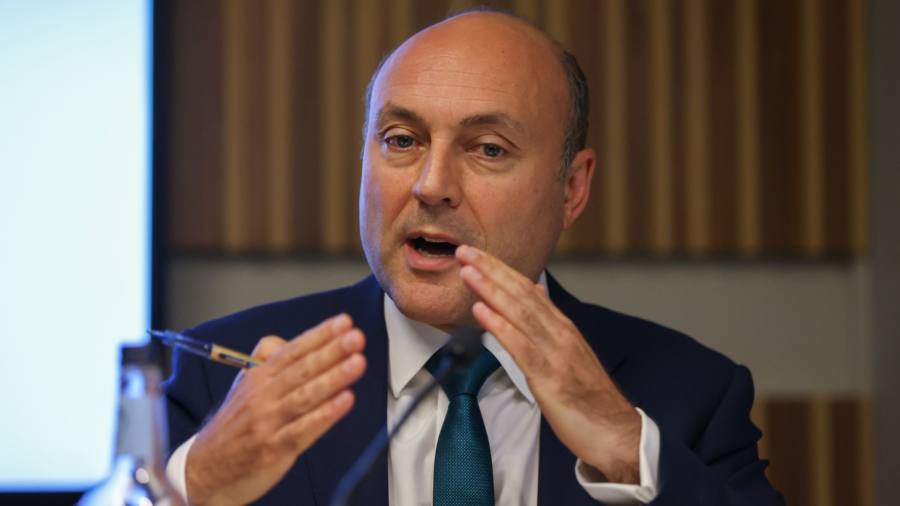
The City of London minister has insisted Brexit is bringing benefits for UK financial services, saying a government overhaul of EU-era regulation of the insurance industry would unlock investment in the British economy.
Andrew Griffith highlighted how the insurance sector had said the government’s planned changes to the Solvency II regulation could result in the industry investing £100bn in the economy, including in infrastructure. “What we are doing here is unlocking a big opportunity,” he said.
Boris Johnson, who as prime minister oversaw the UK’s Brexit trade deal with the EU, has admitted it did not go as far as Britain would have liked on financial services.
The UK exited the EU single market for financial services, and City businesses have been disappointed by delay in the two sides finalising new arrangements on market access.
British ministers are next week expected to set out several post-Brexit reforms of financial services regulation that they hope will boost the City’s competitiveness as a global financial centre, as well as provide benefits to the UK economy.
Griffith told the Financial Times the Solvency II changes were the first “proof points of how we are benefiting from having regained control of our rule book . . . We will be bringing forward other measures to deregulate and benefit from opportunities in other areas of the capital markets.”
He flagged further reforms to UK capital markets and a “selective” repeal of EU law in coming weeks.
“I think this is a moment in time as we come out of the macro environment [of] the last few years, with things like Covid, which has impeded progress to date,” said Griffith.
He said legislation to pave the way for Solvency II reform was expected to be “delivered essentially over the course of 2023”.
Speaking earlier to a conference in Edinburgh hosted by TheCityUK, the trade body, Griffith said the financial services industry was “at the forefront of this government’s mind”.
He added that chancellor Jeremy Hunt had flagged the industry as one of the key sectors for economic growth in his Autumn Statement this month.
“When we ask ourselves what, in a globally competitive marketplace, is it that we, the United Kingdom, are going to be good at? A huge part of the answer to that question is financial services,” said Griffith.
He added there was “no reason why the UK cannot and should not continue to provide clearing services for countries in the EU and indeed, around the world” despite efforts by the bloc to take some of this business.
Most of the world’s interest rate swaps are processed in London, at clearing houses that have not moved since Brexit. Politicians in the EU are unhappy that euro-denominated derivatives are handled in a market outside their regulators’ direct oversight.
Griffith said he would push through reform proposed in a government-commissioned review of company fundraising by Freshfields lawyer Mark Austin.
“We have to enhance the international competitiveness of UK capital markets and support the growth ambitions of those companies who choose to list here,” added Griffith.
Last week, the government dropped plans for ministers to have a new “intervention power” to over-rule City regulators and seize the opportunities of Brexit.
Griffith said provisions in the government’s financial services bill, such as regulatory duties to promote growth and international competitiveness, “should be sufficient to allow the UK to seize the opportunities”.